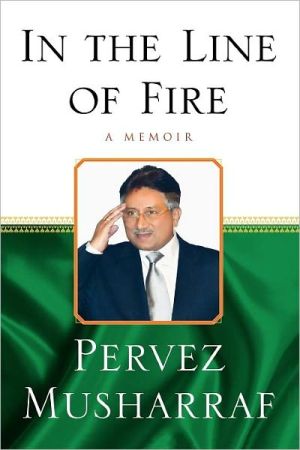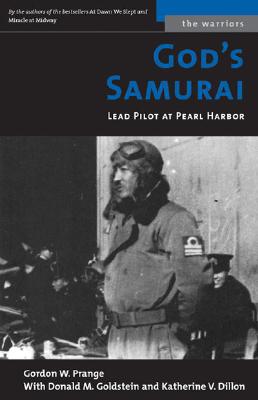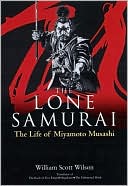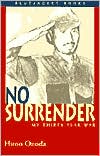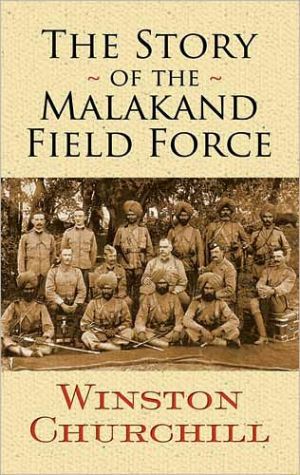In the Line of Fire: A Memoir
According to Time magazine, Pakistan's President Pervez Musharraf holds "the world's most dangerous job." He has twice come within inches of assassination. His forces have caught more than 670 members of al Qaeda in the mountains and cities, yet many others remain at large and active, including Osama bin Laden and Ayman Al Zawahiri. Long locked in a deadly embrace with its nuclear neighbor India, Pakistan has come close to full-scale war on two occasions since it first exploded a nuclear bomb...
Search in google:
It is almost unprecedented for a head of state to publish a memoir while still in office. But Pervez Musharraf is no ordinary head of state. As President of Pakistan since 1999, his is one of the most dangerous jobs in the world, and he continues to play a crucial role in the global war on terror. A one-time supporter of the Taliban, a general who fought in several wars, President Musharraf took a decisive turn against militant Islam in 2001. Since then he has survived two assassination attempts; rooted out militants in his own government; helped direct countless raids against al-Qaeda both in his cities and in the mountains; and tracked Osama bin Laden with technical and human intelligence. In the Line of Fire is astonishingly revealing and honest about dozens of topics of intense interest to the world. Among its many revelations: exactly how Pakistani authorities tracked down and smashed three major al-Qaeda control centres in the mountains; how al-Qaeda's many-layered structure was revealed after the assassination attempts; Bin Laden's current position within the al-Qaeda hierarchy; what it has been like to deal with Bush and Blair; how Pakistan and India have avoided nuclear confrontation; and much more. The terrible earthquake of 2005, killing nearly 40,000 Pakistanis, is just one chapter in a life and career that has been filled with danger and drama. The worldwide launch of President Musharraf's memoir promises to be a sensation. The Washington Post - Pamela Constable …despite its limits as a window into history, In the Line of Fire offers valuable insights—sometimes intentionally, sometimes not—about an important U.S. partner in the war on terrorism whose powerful, secretive military-intelligence apparatus was once the Taliban's chief patron…In his writing, as in many of his public comments, Musharraf can prove both his own best salesman and his own worst enemy. Still, this memoir tells us a great deal about a military Muslim leader we need to understand—and about a country to which we should have been paying much more attention.
\ Pamela Constable…despite its limits as a window into history, In the Line of Fire offers valuable insights—sometimes intentionally, sometimes not—about an important U.S. partner in the war on terrorism whose powerful, secretive military-intelligence apparatus was once the Taliban's chief patron…In his writing, as in many of his public comments, Musharraf can prove both his own best salesman and his own worst enemy. Still, this memoir tells us a great deal about a military Muslim leader we need to understand—and about a country to which we should have been paying much more attention.\ —The Washington Post\ \ \ \ \ Foreign AffairsPakistan, the second-largest Muslim state (after Indonesia), a nuclear power, and an uneasy neighbor of India, Afghanistan, and Iran, is fated to play a demanding diplomatic game -- one never more demanding nor more in the public eye than in the years after 9/11. This is the autobiography of the professional military officer who has been calling the shots for Pakistan since 1999, when he seized power in what he calls a "counter coup." As with any memoir by a public figure, especially one still in power, this is more an apologia than a rounded history, but it is an especially good example of the genre. It reveals clearly the mindset of this military man and addresses openly major issues: Musharraf's controversial role in the 1999 Kargil conflict, which brought Pakistan to the brink of full-scale war with India; the case of the Pakistani nuclear scientist A. Q. Khan; the promising but ultimately disappointing negotiations with India; and, most of all, the changed relations with Islamists at home and abroad provoked by the post-9/11 American appeal (or ultimatum).\ \ \ Kirkus ReviewsThe Pakistani leader recounts a life steered by "luck and destiny" and vigorously defends and promotes his nation to the world. A turning point in Musharraf's well-written memoir comes when he recalls one of many attempts to remove him from the scene. In 1999, former leader Nawaz Sharif engineered a bizarre coup that hinged on keeping Musharraf, then commander of the Pakistani military, from leading the army against him by preventing his plane from landing on Pakistani soil. Eventually landing with only a few minutes' worth of fuel to spare, Musharraf borrowed a flak jacket, coordinated the arrest of the coup leaders and took control of a country that, he ruefully acknowledges, has not done its best to be a democracy. Clearly, by Musharraf's account, he's working to improve matters; he advocates religious freedom, gender equality and freedom of speech, and urges that if Pakistan is to move toward prosperity and international influence, it will "have to suppress extremism and intolerance and eradicate them from our society." Such opinions have inspired several assassination attempts, and Musharraf's efforts at destroying al-Qaeda strongholds within the country, which he describes in much detail, have earned him new enemies. Yet the now widely reported news in this memoir is another confrontation: Following 9/11, he writes, the American ambassador presented him with a list of demands that he found unacceptable, among them "blanket overflight and landing rights" that were, he believed, tantamount to a surrender of national sovereignty. Daring to stand up earned him what he describes as "the most undiplomatic statement ever made" on the part of U.S. deputy secretary of state Richard Armitage,who repeated his boss's for-us-or-for-the-terrorists formula and warned that "if we chose the terrorists, then we should be prepared to be bombed back to the Stone Age."Pakistan, Musharraf insists, is doing what it can to contain Islamist terrorism. Time will tell, but his memoir sheds much light on the politics and challenges of the region.\ \
